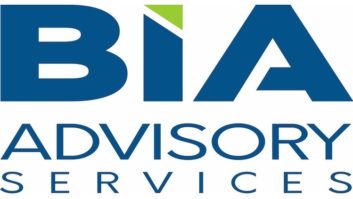Potentially Sticky Political Pitfalls
Feb 1, 2012 2:30 AM, by Lee Petro
Last month, this column provided a brief refresh of the political advertising rules, and mentioned that we would be covering some of the pitfalls confronting broadcasters this month. With the basics now under our belt, the following is a discussion of several potentially sticky situations broadcasters should try to avoid.
Package/Bonus Spots: Most stations offer long-term advertising packages to their frequent customers. These package deals may be priced to include extra spots, or reflect a “bulk rate” discount. In either case, a station must consider these long-term packages when calculating its lowest unit rates during the political window. Even if a candidate only wants to order a small number of spots, the candidate is entitled to the discounted rate for the same class and time.
Under these circumstances, the station must allocate the rate charged for the spots running within the package’s term among the various classes and determine each spot’s portion of the package price. That is the rate used for that particular class of time to determine the lowest unit charge for candidates during the political window. The allocation can take into account the relative value of the spot over the term, i.e., higher value for those spots aired during the time of year when the demand is greater. But since the allocations must take place when the packages are purchased, if stations are taking long-term orders that will run through the primary or general elections, make sure that the necessary steps are taken now.
Web-based Advertising: A frequent component of the packages discussed above include advertising on a station’s website. While it is obvious that a station’s website is largely outside the routine regulation of the FCC, certain actions taken by a radio station must be considered in connection with political advertising placed on the station’s website.
In particular, if a station includes Web-based advertising in a package with on-air advertising, the Commission has advised that an advertising package that includes a station’s website must also be available to a candidate’s competitor. While this may seem odd, the Commission’s policy has always been that competitors must be treated alike, and extra benefits made available to one candidate must be made available as part of the equal opportunities made to that candidate’s competitor.
Furthermore, while a station is prohibited from censoring on-air political ads by legally qualified candidates, and thus enjoys immunity from charges of slander/libel or copyright violations, if those advertisements are placed on a station’s website, such immunities do not apply. As with on-air advertisements on non-candidates, a station must pay close attention to the content of website advertisements to ensure that the content does not create liability for the station. If a station receives a complaint, it should contact the party placing the advertisement for support to back its claims. If, after a reasonable review, the station believes the complaint to be valid, it should pull the advertisement.
Public Files: Timely disclosure of the spots purchased by candidates is very important, especially during the run-up to voting day. As such, stations should take steps to ensure that information relating to the purchase of time, including the rate, date, time and class of time, and the name of the purchasing agent (candidate, committee), is placed immediately in the station’s political file within the public inspection file. These disclosure policies also apply to third-party, non-candidate orders, along with the disclosure of the group, and the names of its executive officers or directors. While an opposing candidate is not entitled to updates from the station’s staff, if the station advised one candidate over the phone of recent purchases of time, than the station must also provide such updates to the other candidates in the same race.
Hopefully, this discussion has raised some factors that will help you navigate the upcoming political season. You should contact your communications counsel if you have any questions.
Dateline

Feb. 16: Stations in Indiana, Kentucky and Tennessee continue running License Renewal Pre-Filing Announcements, continuing on March 1 and 16.
April 2: Stations in Indiana, Kentucky and Tennessee file License Renewal Application and EE O Program Report.
April 2: Noncommercial radio stations in Delaware, Indiana, Kentucky, Pennsylvania, and Tennessee file their Biennial Ownership Report (FCC 323-E).
Petro is of counsel at Drinker Biddle & Reath, LLP. Email: [email protected].
February 2012
WAOK uses Method of Moments modeling, IBOC update, the Tieline Bridge-IT is taken on the road, and new EAS rules are released….












